![]()
|
Index | Pottery | Pottery manufacturers | Thomas Booth & Son
|
| [Thomas
Booth & Co] 1868-72 |
[Thomas
Booth & Son] 1872-76 |
[Thomas G
Booth] 1876-83 |
[TG & F
Booth] 1883-91 |
[Booths
Ltd] 1891-1948 |
[Booths
& Colclough] 1848-54 |
[Ridgway
Potteries] 1955-72 |
Location and period of operation:
|
Thomas Booth & Son |
Tunstall |
1872 |
1876 |
|
Earthenware and ironstone manufacturers at the Church (Bank) works in Tunstall, Stoke-on-Trent
NOTE: There is no known relationship between this Thomas Booth and Thomas Booth of Hanley |
Formerly: T Booth & Co
Subsequently: T. G. Booth

Thomas Booth & Son shallow dish in the Indian Ornament patternthis pattern was continued through the successive iterations
of the Booth companies
hand coloured transferware soap dish in the Royal Ribbon pattern
marked with T. B & S
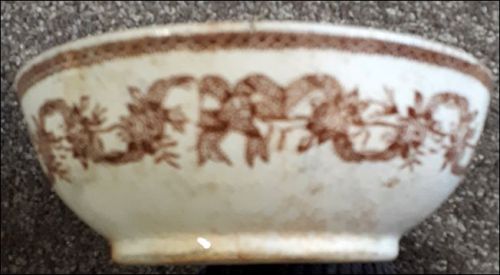
small bowl in the Royal Ribbon patternphotos courtesy: David Rawson
The Royal Ribbon pattern was introduced by the predecessor Thomas Booth & Co
plate in the popular MADRAS patternthe pattern was first produced and registered by Thomas Booth & Co
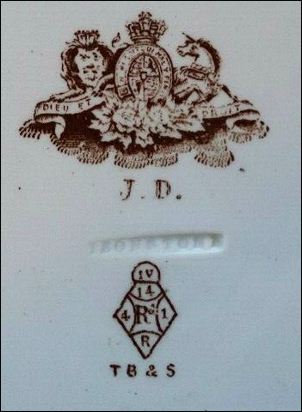
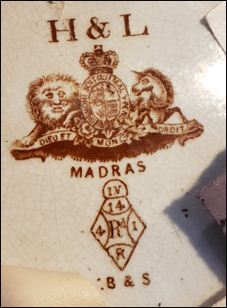
various marks on MADRAS pattern warethis and other patterns were produced by previous
and subsequent BOOTH companiesthe registration diamond shows that the pattern
was first registered on 14 August 1872J.D. and H & L are probably the initials of retailers
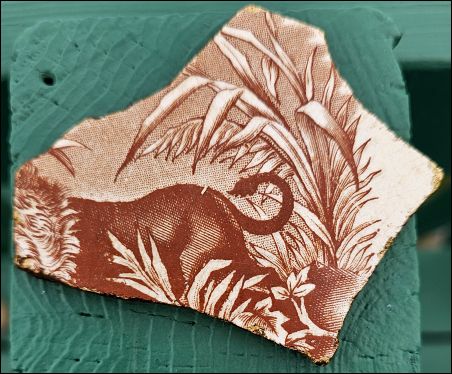 |
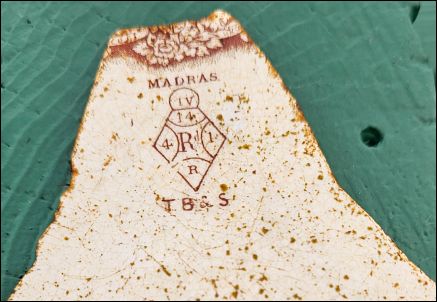
fragment of ware in the MADRAS pattern found (2024) in Burin, Newfoundland, Canada photo courtesy: Darrell Butler |
Marks & initials used on ware for identification:
T B & S
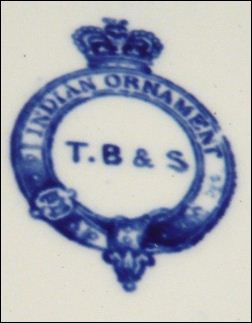
T B & S
'Indian Ornament' is the pattern name
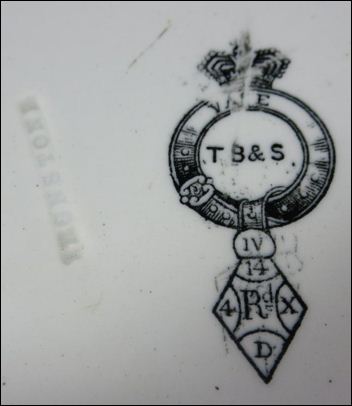
T B & S
IRONSTONE
(impressed mark
)
'VASE' is the pattern name
this pattern was introduced by the predecessor: Thomas Booth & Co
the registration diamond
shows the
pattern was registered on 14th
September 1868
- click for more information on the Church Bank Works -
Questions, comments, contributions? email: Steve Birks